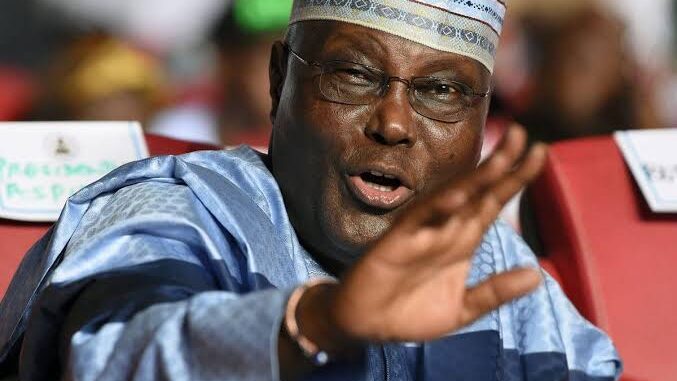
In response to increasing inquiries about his potential approach to Nigeria’s economic challenges, former Vice President and 2023 presidential candidate of the People’s Democratic Party (PDP), Atiku Abubakar, has detailed the steps he would have taken to address the country’s current economic issues.
In a lengthy statement on X today, Abubakar expressed concern over what he described as “trial-and-error” policies by President Bola Tinubu’s administration, which he claims have led to “excruciating pains” for Nigerians.
“I am not the president; Tinubu is,” Abubakar stated, adding that the focus should remain on the current administration’s actions. However, he emphasized that his vision would have offered Nigerians more strategic and empathetic reform measures, based on what he termed his “Covenant with Nigerians.
The Former Vice President outlined a comprehensive reform plan that prioritizes fiscal and economic stability while protecting vulnerable populations.
According to him, his administration would have prepared thoroughly with “adequate diagnostic assessment” and extensive stakeholder consultations to develop a coherent reform agenda.
One of Abubakar’s proposed cornerstones is the Economic Stimulus Fund (ESF), designed to support micro, small, and medium enterprises (MSMEs) with a $10 billion investment.
He also proposed a Skills-to-Job Program targeting both graduates and youth outside formal education or employment.
In the realm of infrastructure, Abubakar envisaged an Infrastructure Development Unit (IDU) directly overseen by the president, tasked with fast-tracking projects via a private-sector-driven Infrastructure Development Fund (IDF) worth approximately $25 billion.
Gradualist Approach to Subsidy Removal and Foreign Exchange Reforms
On subsidy removal, Abubakar advocated for a gradual phase-out, recalling his administration’s approach during his vice presidency, which implemented gradual adjustments.
This approach, he argued, would prevent the shock Nigerians are now experiencing.
He emphasized that subsidy savings should be invested in healthcare, education, and rural infrastructure.
Alhaji Abubakar also criticized Nigeria’s multiple exchange rate windows, proposing a managed-floating system as a balanced approach to foreign exchange reforms.
He stressed that this system would avoid the extreme effects of a fully floating exchange rate, which could exacerbate inflation.
Emphasis on Transparency, Empathy, and Security
In contrast to the perceived opacity of the current administration, Abubakar underscored the importance of transparency in government communication to build public trust.
He also pledged that his team would “lead by example” by minimizing government luxuries and curtailing revenue leakages in the public sector.
To address the nation’s security concerns, he proposed immediate reforms in security funding and welfare, along with initiatives in diplomacy, intelligence, and improved border control.
Alhaji Abubakar urged President Tinubu’s administration to adopt ideas from his proposed reforms in the interest of alleviating the suffering of Nigerian citizens.
“I hope Tinubu and members of his administration are humble enough to borrow one or two things from our ideas,” he said.

Leave a Reply